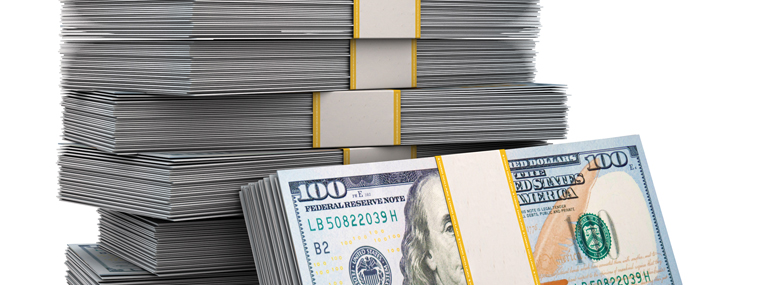
Battling Skyrocketing Property Taxes
By Mark E. Battersby / Published June 2017

Despite all of the attention focused on income taxes, it is the bill for the tax on the property owned(or leased)by many pressure cleaning contractors, businesses, and suppliers that is the biggest expense and the most difficult to manage. According to the Council on State Taxation, a Washington, DC, think-tank, property taxes are by far the largest state and local taxes paid by businesses.
Nearly all property tax-imposing jurisdictions tax real property. This includes land, buildings, and all improvements (often called fixtures) that cannot be removed without damage to the property. Many jurisdictions also tax certain types of other property used in a business as well as imposing property taxes affecting many commercial tenants.
Lowering a pressure washing business’s property tax bills can often generate major savings because, once reduced, those savings will remain effective year after year. Lowering property tax bills is both feasible and perhaps even necessary in today’s economy. Even better, lowering tax bills can often be accomplished with a few simple strategies, strategies that have worked in all of the more than 14,000 taxing jurisdictions.
The Systems
Unlike most taxes, property taxes are computed by the local government, and the taxpayer is usually told only what or how much to pay. With so many taxing jurisdictions, many staffed with unelected or inexperienced officials charged with placing a value on properties, it is little wonder that so little is understood about this tax.
Few pressure cleaning business owners or managers are aware of how easy it is to check the computation of that property tax bill—as well as that of the underlying valuation. In the midst of this chaotic system, there are a number of strategies a property owner can use to reduce property taxes.
Nearly all taxing jurisdictions offer temporary or permanent, full or partial, exemptions from property taxes, often as an incentive for a particular business to locate its premises within the jurisdiction. Some jurisdictions provide broad exemptions from property taxes for businesses located within certain areas, such as enterprise zones.
All property taxes are considered “Ad Valorem” taxes—that is, taxes that are based on the value of the property. Armed with a few facts about the pressure washing operation’s property, it is relatively easy to review the tax assessor’s records. Property tax records are considered public records and, as such, are available to everyone. Plus, most tax assessors, elected or not, are usually eager to cooperate and are often willing to correct any errors detected and brought to their attention.
Renters Pay Taxes Too
Many pressure cleaning businesses own little or no property. However, just because the business rents its garage, warehouse, or showroom space doesn’t mean that property taxes can be ignored. In the Northeast, for example, studies show that property taxes range from 15 to 25 percent of the total rent paid by most businesses.
While few operators have the clout to insist that their lease require the landlord to initiate a property tax protest, such a clause is strongly
recommended by many real estate experts. Ownership of the property and a direct relationship with the taxing authority often make it better from both a logistical and legal standpoint for the landlord to lead the battle for lower or more equitable property taxes.
Reducing The Bite
Those wishing to reduce the property taxes on their pressure cleaning business property can take a variety of approaches. However, to have a productive conversation with an assessor, there are other good points that a business owner or manager should be knowledgeable about or question:
• What prices similar buildings have sold for in the jurisdiction
• Average rental rates within the jurisdiction
• How much it costs to operate the building annually in both fixed and variable costs
• The appropriate capitalization rate for the specific type of property, location, and occupancy
• Evaluation of the assessment to determine whether the assessed value of the pressure cleaning business’s property reflects current market conditions.
• Comparing the assessment to neighbors to discover what other area businesses are paying to ensure the property’s taxes are in line with theirs. Paying more than your business neighbors is usually grounds for appeal.
• Appeal process: Contacting the local tax office to find out how appeals are filed. Sometimes, business property taxes can be reduced with a simple tax appeal involving the valuation of equipment, furniture, computers, and inventory.
• Analyze additional factors: Several things can affect property taxes, such as income and expense statements, market capitalization rates, replacement costs, costs of environmental cleanup, and more.
• Ensure proper zoning: Tax rates are often linked to the various zoning classifications, making it a good idea to contact the local state tax office to determine if the property’s zoning classification is accurate.
• Consider a cost-segregation analysis: Cost segregation studies identify various components of a building that may be eligible for accelerated tax depreciation. Reclassifying certain assets in this way significantly reduces most property tax obligations.
• Use software: Using a property tax software program can help root out possible reductions and facilitate the appeal process.
Remember that several factors can influence a change in commercial property taxes, including a change of ownership or new construction. This highlights the importance of determining whether the business is located in a designated empowerment or technology zone, which can reduce commercial taxes.
There may also be grounds for an appeal if it can be shown that the type of real estate owned—showroom, warehouse, garage or offices, for example—has failed to keep pace with the local market. However, upon receiving the annual commercial tax assessment, if it is to be questioned or an appeal filed, don’t delay. In some states, there is a 60- or 90-day period to file an appeal or lose the right.
In general, the states employ various provisions to remove property from the tax base. Certain types of property are granted full or partial exemption based on the characteristics of the property and/or its owner. In some states, different types of property are assessed differently or taxed at different rates.
Fighting The Property Tax Assessment
Each taxing jurisdiction has its own specific requirements for commercial property tax appeals, which can sometimes be used in the operation’s favor. In Georgia, for example, when appealing the tax valuation of a property, only a portion of the property tax bill must be paid while the property is under appeal. Of course, if an appeal is lost, the remaining balance must be paid. A win, however, means the pressure cleaning business is not left waiting for a large refund.
And, factual errors do exist, listing two-story buildings where only a one-story building stands, a two-hundred-foot building on a lot only 75 feet deep, basements where none exist, or parking lots that are really on a neighboring property. Math errors and mistakes in the property’s measurements, construction materials, roof type, and condition are also quite common and are usually corrected by the property tax assessor on the spot.
If the assessor can not or will not correct discovered errors, or if the pressure washing business owner or manager wants to challenge an assessment on the grounds that it is not comparable to other, similar properties, the matter is usually presented to a local appeal review board. The next step is to present the case to the state board of appeal. And, finally, in those rare instances where these steps have failed, the entire matter may be taken to court.
On The Horizon
In response to what anti-tax advocates have branded as “out of control” property taxes, a number of states have decided to make use of tax “caps” to restrict the growth of local property taxes. A tax cap limiting increases in assessed value offers taxpayers some certainty by allowing them to estimate their anticipated property tax burdens more easily. On the other hand, tax caps on assessed value in particular can lead to tax disparities among property owners—and lower the revenue of fiscally-strapped local taxing jurisdictions.
Bottom line, few contractor or business operators think about property taxes. A number of years ago, a study showed that few major, Fortune-500 companies bothered to challenge the assessment on their properties. According to that study, however, almost nine of ten companies that did challenge their property tax assessments were successful.
Fortunately, there are a number of very good consultants who can help reduce local property taxes. Many will work entirely or largely on a contingency basis. There are also attorneys—known as “certiorari,” or property tax protest attorneys—who provide such services.
Is the property tax assessment on your pressure cleaning business’s property correct?





